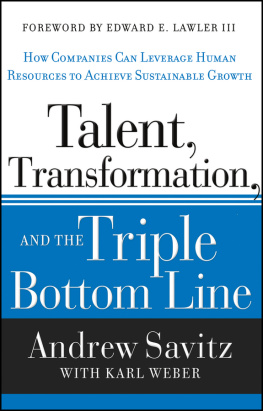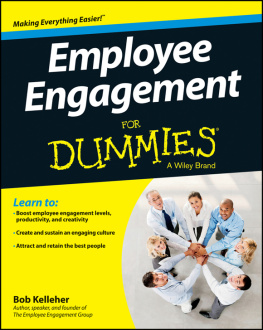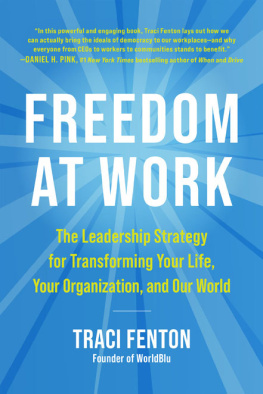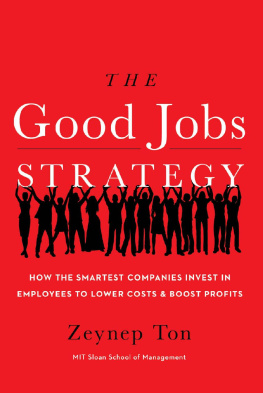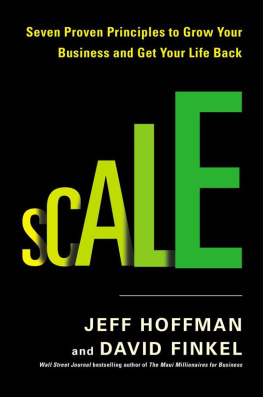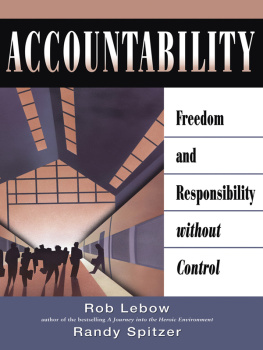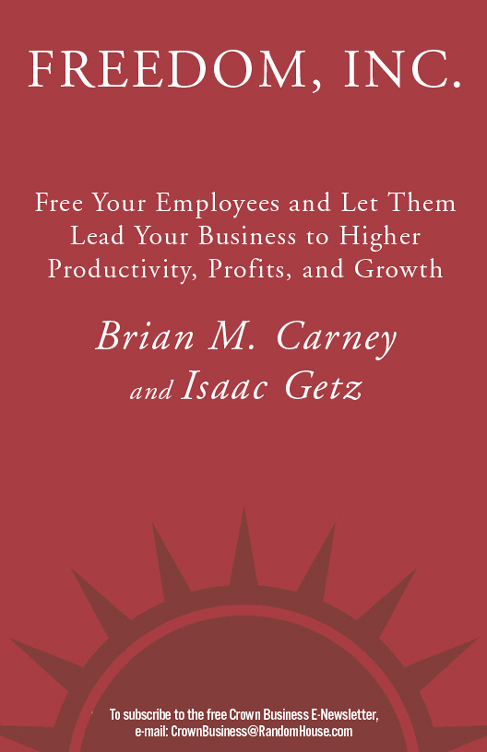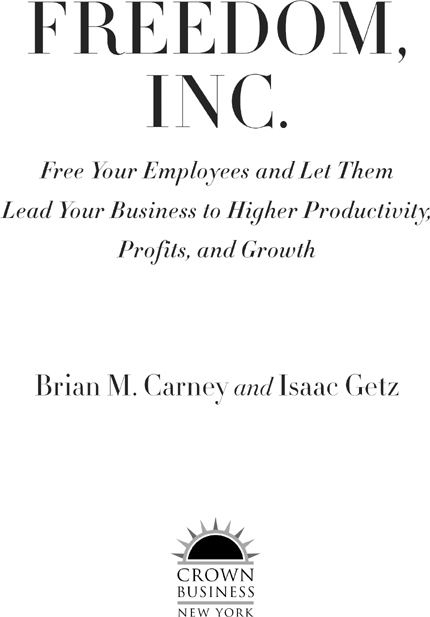Introduction
F REEDOM WORKS .
In every aspect of our livesin politics, in economics, in entertainment, and in family lifewe demand the freedom to decide matters for ourselves. And yet when it comes to our work lives, far too many people are stifled, constrained, hemmed in, and tied down by bureaucracy and rules that have nothing to do with allowing them to do the best they can in their jobs. These constraints leave people feeling out of control of their work lives, which, in turn, leads to stress, fatigue, and disengagement from work.
Amazingly, all of this is already well understood and has been for decades. As far back as 1924, William L. McKnight, the legendary CEO of 3M, put the matter succinctly: If you put fences around people, you get sheep. Give people the room they need. With that in mind, McKnight went on to build an environment at 3M that unleashed the creativity and initiative of 3Ms people. And yet, the culture McKnight built at 3M has been more admired than imitated. Sixty years later, Japanese industrialist Konosuke Matsushita looked across the ocean at his competitors and described a corporate America still in the grips of Frederick W. Taylors scientific management, which organizes work by means of detailed procedures that specify narrow, repetitive tasks for everyone, and demands full compliance with their execution:
We are going to win and the industrial West is going to lose out because your firms are built on the Taylor model.
Notice that Matsushita was not arguing that liberating your employees was a nice thing to do for them, or that it would make them happier or make managers better people. Continued existence, he said, depends upon the day-to-day mobilization of every ounce of intelligence. That means every ounce of intelligence in every brain that comes through the door of your company every day. If you are not doing everything you can to take advantage of that brainpower and the knowledge those brains possess about your business, youre not only leaving money on the table, you are putting your companys survival at risk.
As we write these words in early 2009, the United States and the world economy are in a dire state. The U.S. economy is shrinking rapidly, corporate profits are collapsingor in many cases simply nonexistentand a half a million Americans a month are losing their jobs. Everyone is afraid. Bosses are afraid that if they dont maintain or restore profitability, their jobs will be on the line. Frontline employees are afraid that their jobs will be cut so that their bosses can keep their own.
We can guarantee you that important opportunitiesfor the elimination of senseless waste that shows up nowhere on your profit-and-loss statements, for keeping customers, and for acquiring new accountslie just down the hall, in the minds of the people you already employ.
But waitdont walk down that hall and ask them how to save your business just yet. Sit back down and keep reading. If taking advantage of those opportunities were as simple as asking people to raise their hand and speak, youd have done it already. People respond to the environment in which they find themselves. Thats what McKnight meant when he said that if you put up fences, you get sheep. The fences turn the people into sheep in subtle ways that they themselves might not even realize.
Now, Matsushita was being a bit unfairthe problems with Taylorism, with turning your employees into automatons, have been appreciated for a long time, as McKnights observation shows. At times, trying to address this lack of autonomy has almost become an obsession among management gurus. But for all the ink spilled and all the energy expended in the name of empowering employees, Dilberts comic-strip world remains depressingly familiar to people inside most companies.
You might conclude from this that bureaucracy, top-down control, and maybe just a touch of George Orwell is simply the cost of doing business in the modern world. We may not like it, but is it possible to live without it?
The liberated companies in this book dont just say that it isthey prove it. In industries that range from high-tech to manufacturing, from services to finance and to heavy industry, these firms have done away with the whole gamut of mechanisms of control that characterize too many businessesand theyve thrived as a result.
Freedom, Inc. is the product of more than four years of research. As we studied these companies, we became convinced of two things: First, they all have things in common that tie their success together with their culture of freedom. And second, if truly liberated companies remain relatively rare even today, it is not because their lessons cant be applied elsewhere. The problem with bureaucracy is, instead, a bit like obesity. Its no mystery how to lose weight or avoid gaining it. Study after study has affirmed the basic truth that if you consume more calories than you burn, youre going to pack on the pounds.
We all know this. The evidence is clear, and so, too, is the road to our ideal weight. But more and more people dont travel that road (your authors not necessarily excluded) because its easier to fall back on habit, even when the habits are bad for you. You may admire the svelte figure of some athlete or model and resolve to look like them somedayand then go back to your desk and sneak another bite of that candy bar.
Well, it turns out that a number of the liberated companies in this book are a bit like that supermodel. Executives come from all over the world to see FAVI in northern France or Harley-Davidson in Milwaukee. Harvard Business School has used Sun Hydraulics in Sarasota, Florida, as its main case study on freedom in the workplace. But while other executivesand even competitorsadmire these companies from afar, they dont, or wont, change their own ways. This is not to say, however, that they cant. They can. The very diversity of the liberated companies we encountered and studied convinced us of that. If a brass foundry in France, an insurance company in Texas, and a software firm in Pennsylvania could all set their people free; if liberating leaders could change the culture inside companies with decades of dysfunction in their past or build a new Freedom, Inc. from scratch; then there were lessons here for any company to use to their advantage.
Those lessons are:
1. Stop telling and start listening. Then, remove all the symbols and practices that prevent your people from feeling intrinsically equal.
2. Start openly and actively sharing your vision of the company so people will own it. But dont do this before Step 1 because people who are not treated as equals will leave you alone with your vision.
3. Stop trying to motivate people. Thats right. Instead, build an environment that allows people to grow and self-directand let them motivate themselves. If they understand the vision from Step 2, theyll take care of the rest if you let them.
4. Stay alert. To keep your company free, become the culture keeper. In this role, as liberating leader Bob Davids says, One drop of urine in the soup is too muchand you cant get it out. The price of liberty is eternal vigilance.


